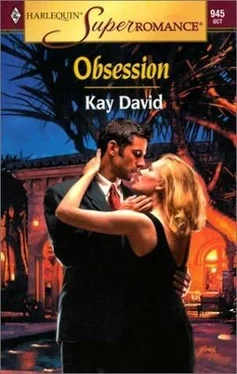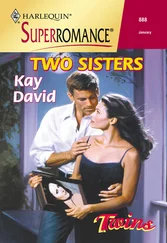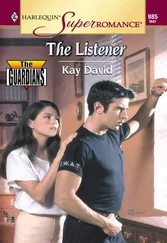
Santa Cruz, Bolivia
TWO YEARS, three months, seven days.
Staring out the smudged and dirty window of her taxi, the cobbled streets and crowded sidewalks passing by in a blur, Emma Toussaint wondered if the day would ever come when she would stop keeping track of time. When she would no longer look at a calendar and automatically calculate the number of weeks that had passed since her life-as she had known it-had ended. She doubted it would. Adding up the days was as natural to her now as breathing.
She tried not to dwell on the situation, but in moments like these, when she had to do something she didn’t really want to do, her past came back full force, and it was impossible to ignore. All that occupied her mind was what she no longer had.
Her family. Her home. The life she’d worked so hard to create.
As if he was deliberately trying to distract her, the driver plunged the vehicle into the melee of the First Ring, the taxi’s bumper barely missing the fender of the ancient truck in front of them. The city streets were laid out in a series of concentric circles, and the congestion never ended. Emma grabbed for the door handle, then realized too late it was missing. With a swoosh, she slid across the cracked leather seat to the other side.
She shook her head and held on to her purse a little tighter. The taxis in Santa Cruz were like everything else in this part of South America. Rundown and just getting by. For as long as she’d been in Bolivia, two years now, the whole country had seemed on the edge of collapse-a state with which she could easily sympathize.
The beat-up Toyota she was in whipped out of the traffic circle and merged onto Avenida de Ventura, the main street of Santa Cruz. It was after eight in the evening and the area was still crowded and noisy, exhaust and smoke hanging over the thoroughfare in a dirty brown cloud. Most of the cars packed around her were ancient and filthy, with gaping cavities in the passenger-side dashboard. She’d been here four months before her Spanish had been good enough to ask about the disconcerting holes. She’d learned then that the vehicles had come from Japan where they’d been right-hand drives. Ripping out the steering wheels, exporters adapted the cars, then shipped them to Bolivia. The autos had spent the prime of their lives in another country and had come here on the downswing.
Just like most of the people.
The driver barreled past four stop signs, honking, then blasting straight into the intersections without hesitating. A block later, he jerked the car to a stop at a light he couldn’t ignore.
Thinking of the party she was going to at the Taminaca Bar- dreading the party she was going to-Emma turned her attention away from the traffic and gazed out the side window. Quickly she realized her mistake and looked the other way, but not quickly enough. Her brain registered what she didn’t want to see, and her heart swelled with sympathy and pain.
The Quechua Indian woman who stood on the corner, every day, rain or shine, cold or hot, was there. Emma went down this street, Ayacucho, on her way to work, and she always saw her. She could see the India begging from her office window, as well.
The poor woman couldn’t have been much older than thirty, but she looked twice that. Her skin was like leather, toughened by daily exposure to the sun and wind. She wore a short-brimmed felt hat-the green one today, not the brown. Underneath it, her black hair hung in two thick plaits, which fell well past her waist. The strands were threaded with gray-from the dust or simply premature aging, Emma couldn’t tell. The rest of her outfit was the same; it never changed from one day to the next, except that she sometimes wore long pants beneath the four skirts she wore. Also three blouses, a vest, endless petticoats-more layers of clothing than Emma could generally count. And then there was the aguayo. Using every color of the rainbow, the fragile shawl was frayed and torn, mended so much Emma was continually shocked to see it still in one piece. As usual, the woman had knotted it behind her neck and then slung it diagonally across her chest. Each village wove a different pattern; if you recognized the design, you could tell where the owner came from.
Holding her breath, Emma looked at the aguayo.
The child was there, bundled up so tightly inside the rag it couldn’t move anything but its eyes. Two black dots stared back at Emma from beneath a thatch of equally dark hair. A smudge of something white was on the baby’s cheek.
A physical catch formed inside Emma’s throat, closing it down as tightly as if fingers were wrapped around her neck and squeezing. She struggled against the sensation and tried to swallow, but the feeling wouldn’t go away. She almost wished someone was trying to strangle her. Then her brain would shut down, too, and she wouldn’t have to think anymore.
That wouldn’t happen, though. Emma had seen the Quechua too many times and had hoped for that same kind of relief without it coming. There was always a child in the aguayo. Sometimes older, sometimes younger, but always there was a child. And seeing it always affected her just this way.
Without meaning to, Emma found herself leaning toward the car window, her palm flat against the glass, her fingers spread, almost as if she was reaching out for the baby. The pain in her chest spread in a wider circle and hampered her ability to think-but not to remember.
Sarah had been eight months old when Emma had left the States, just about the age of the child in the serape. Her eyes had been brown, too, and the fuzz on her head dark and curly. Almost five, Jake had looked more like Emma. Lighter eyes. Blond hair. When she’d brought Sarah home from the hospital, Jake had wanted to hold her. As usual, Todd had protested, but Emma had ignored her husband and carefully situated the little boy on the couch. She’d then lowered the infant into his arms, and when she’d stood up and looked at those precious children, the image had burned itself in her heart. She hadn’t understood, beyond the obvious, why it had fixed itself so firmly in her mind at that time. But then again, maybe she had. On a subconscious level, she’d been waiting for disaster for years. Todd had married her and brought her into his life, one completely different from her own, and it’d felt too good to be true right from the very beginning. Not to worry about money. Not to ever think twice about food, shelter or whatever else her children needed. Then everything had changed horribly, almost overnight.
The light went from red to green and the taxi roared down the street, the tiny dirty child and its begging mother falling behind. Emma turned and stared out the back window, but the glass was covered with grit and she couldn’t see them. Her heart shuddering, she faced the front once more, then tilted her head against the splintered leather seat and closed her eyes.
Two years, three months, seven days.
RAUL SANTOS leaned against the bar and sipped his cold Paceña, the bitter bite of the beer as it rolled over his tongue and filled his mouth such a pleasure he could hardly believe it. All his senses were heightened. The feel of the wood against his back, the scent of the flowers sitting on a nearby table, even the painting over the mirror by the liquor bottles. The colors looked brighter than they should have, the images more real. The Taminaca Bar in Santa Cruz, Bolivia, was so far removed, so incredibly different, from where he’d been six months ago, it was unnerving.
Читать дальше
Конец ознакомительного отрывка
Купить книгу













